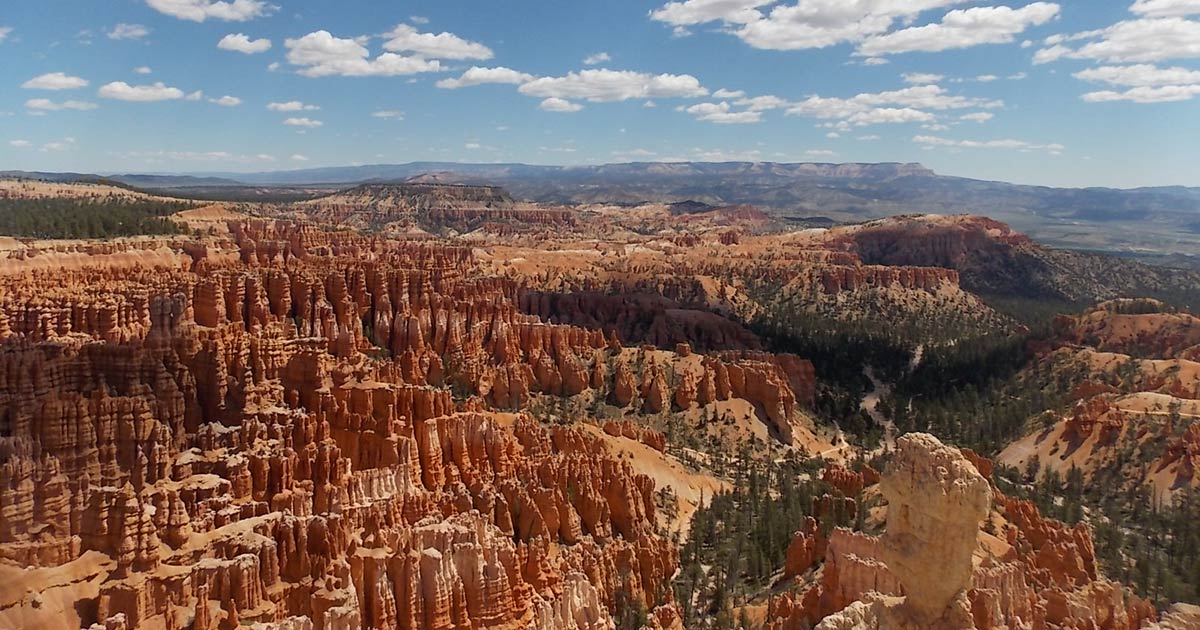REQUIRED COURSES
Take the following courses:
ESS-100 Environmental Systems I
4 CreditsN, WK-SP, CTGISPre-Req or Co-Req: FYC-101 or EN-110 or EN-109.
ESS-110 Environmental Systems II
3 CreditsN, SW-LEPrerequisite or corequisite: FYC-101 or EN-110 or EN-109. (NOTE: ESS-100 is not a prerequisite for ESS-110.)
GL-100A Environmental Geology
3 CreditsN
GL-204 History of Earth
4 CreditsN, WK-SPPre-req: FYC-101 or EN-110 or EN-109
GL-310 Structural Geology
4 CreditsNPrerequisite: GL-100A or GL-204 or GL-240
GL-389 Geology Professional Seminar
1 Credit
GL-240 Geological Field Methods I
4 CreditsN, CW, CTGISPrerequisite: GL100A. Note: A special course fee is assessed.
CH-142 Integrated Chemistry Principles I
3 CreditsNCorequisite CH143
CH-143 Integrated Chem Principles I Lab
1 CreditsN, QSCH142 is a corequisite of this course. A lab fee is associated with this course.
Complete one of the following options below:
OPTION 1:
GL-126 Environmental Geochemistry
3 CreditsN
OPTION 2:
CH-145 Integrated Chemistry Principles II Lab
1 CreditN, QSPrerequisite: CH-143. A lab fee is associated with this course.
CH-144 Integrated Chemistry Principles II
3 CreditsNPrerequisite: CH-142
SOCIETAL IMPACTS REQUIREMENT
Take two of the following courses:
GL-111 Oceanography
3 CreditsNField experience is offered and a special fee is assessed.
GL-172 Geology of National Parks
3 CreditsN, WK-SPPRE-REQ: FYC 101.
ESS-337 Environmental Law
3 CreditsS, CTGISPrerequisites: ESS-100 or PS-110. Must have sophomore standing or above.
CONN-314 Global Climate Change
4 CreditsCONN,IC
CONN-331 Battlefield Detectives
4 CreditsIC,CONN
QUANTITATIVE REQUIREMENT
Take one of the following courses:
BI-305 Biostatistics
4 CreditsN, QS, CTGESPrerequisites: BI106 or ESS100
ESS-230 Environmetrics
3 CreditsN, QS, CTGES, CTGISPrerequisites: Sophomore standing and permission of the instructor.
MA-130 Calculus I
4 CreditsN, QM
MA-220 Introduction to Probability & Statistics
4 CreditsN, QS, CTGESPrerequisite: MA130
DEPTH REQUIREMENT
Take five of the following courses:
PC-202 Intro Physics I
3 CreditsN, QM, WK-FRCorequisite: PC-202L. Corequisite or Prerequisite: MA-130 or MA-230.
PC-202L Intro Physics Lab I
1 CreditNCorequisite: PC-202. Prerequisite or corequisite: MA-130 or MA-230.
PC-211 Environmental Physics
1 CreditNCorequisites: PC211.
PC-211L Environmental Physics Lab
1 CreditsNCorequisites: PC211.
GL-210 Minerals
4 CreditsN, WK-SPPre-req: FYC-101 or EN-110 or EN-109.
GL-304 Paleobiology of Invertebrates
4 CreditsN
GL-305 Hydrogeology
3 CreditsN
ESS-301 Environmental Methods
3 CreditsNPrerequisites: ESS100 and 1 year of chemistry or permission of the instructor.
ESS-310 Water Resources I
3 CreditsQM, NPrerequisites: ESS100.
ESS-324 Natural Resource Management
3 CreditsNPrerequisites: ESS100 and BI105 and BI121. A special course fee is assessed.
ESS-330 Geographical Information Systems
4 CreditsCTGISNote: A special course fee is assessed. Prerequisite: ESS100.
GL-401 Sedimentology
4 CreditsNPrerequisite: GL202.
GL-405 Principles of Stratigraphy
4 CreditsCW, NPrerequisite: GL-204.
GL-450 Geological Research
1-6 CreditsNPrerequisite: permission of Geology faculty member.
CAPSTONE EXPERIENCE
Take one of the following courses:
GL-405 Principles of Stratigraphy
4 CreditsCW, NPrerequisite: GL-204.
GL-440 Geological Field Methods II
4 Credits Prerequisites: GL 240. Note: A special course fee will be applied.
GL-450 Geological Research
1-6 CreditsNPrerequisite: permission of Geology faculty member.
POE Credit Total = 48-59
Students must complete at least 18 credits at the 300/400-level. Any course exception must be approved by the advisor and/or department chair.
 skip to content
skip to content




